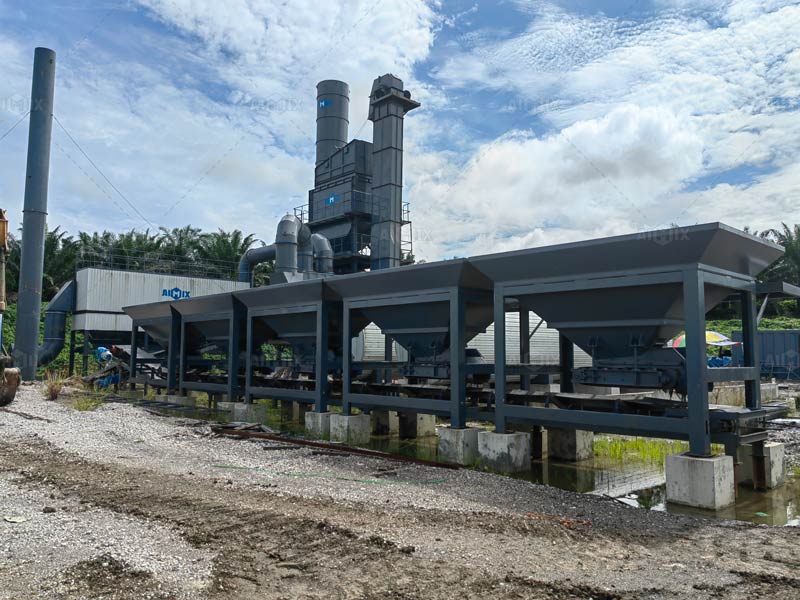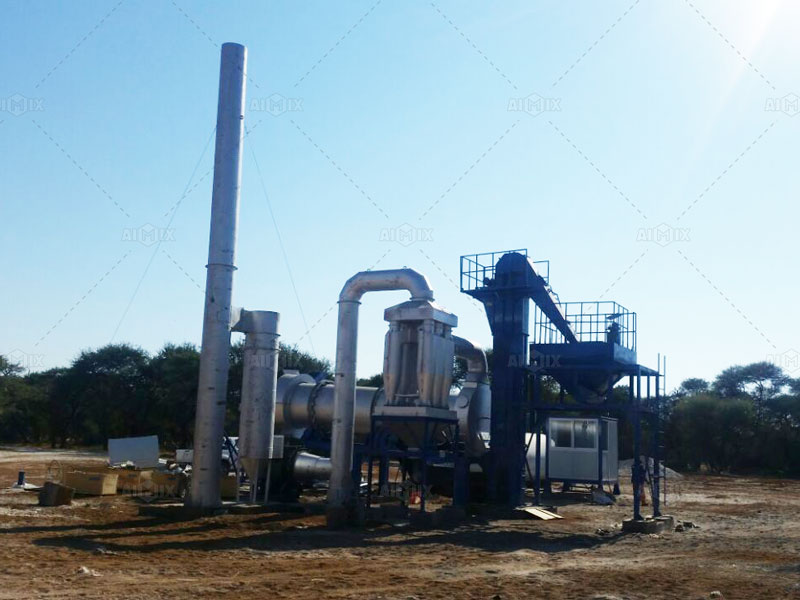In the construction industry, the quality and efficiency of the materials used play a critical role in determining the success of any project. When it comes to road and bridge construction, asphalt remains one of the most vital materials for creating durable, smooth, and long-lasting surfaces. Modern asphalt plants, including mobile variants, have revolutionized the way construction projects are handled, leading to faster project completion and higher-quality results. This article will explore how asphalt plants(plantas de asfalto) contribute to improving road and bridge construction projects, focusing on their benefits and the key features that make them essential for modern infrastructure.

The Role of Asphalt in Construction
Asphalt is widely recognized for its durability, flexibility, and ability to withstand heavy traffic and extreme weather conditions. These qualities make it the preferred material for constructing roads, highways, and bridges. However, the effectiveness of asphalt largely depends on how it is produced and applied. This is where asphalt plants come into play, providing a controlled environment for producing high-quality asphalt mixtures tailored to specific project needs.
Types of Asphalt Plants
Before diving into their benefits, it’s essential to understand the different types of asphalt plants available. Primarily, there are two main categories:
- Stationary Asphalt Plants: These are large, fixed installations often used for large-scale construction projects. They are ideal for long-term operations where high production capacity is required.
- Mobile Asphalt Plants: These plants are portable and can be transported directly to construction sites. Mobile asphalt plants are perfect(Plantas de asfalto móviles son perfectas) for projects that require flexibility, such as smaller road repairs or remote bridge construction.
Both types of plants offer distinct advantages depending on the scale and location of the project.

Key Benefits of Asphalt Plants in Construction
1. Consistent Quality Control
One of the most significant benefits of using an asphalt plant is the ability to produce consistent, high-quality asphalt. These plants are designed to precisely control the temperature, mixing time, and ingredient proportions, resulting in uniform asphalt batches. This consistency is vital for road and bridge construction, where the quality of the asphalt impacts the durability and longevity of the structure.
Advanced Technology for Better Mixtures
Modern asphalt plants utilize advanced technology to monitor and adjust the mixture as needed. Whether using a stationary or mobile asphalt plant, operators can ensure that the final product meets all required specifications, including temperature and compaction standards. This level of control helps reduce waste and ensures that every batch of asphalt is optimal for its intended use.
2. Increased Efficiency and Speed
Time is a critical factor in construction, especially for large-scale road and bridge projects. Asphalt plants help streamline the production process, ensuring that asphalt is readily available when needed. This eliminates the need to wait for asphalt deliveries from distant suppliers, reducing project delays and minimizing downtime.
On-Site Production with Mobile Asphalt Plants
For projects in remote locations, such as bridge construction in less accessible areas, mobile asphalt plants offer an ideal solution. These plants(plantas de asfalto en venta) can be set up on-site, providing immediate access to fresh asphalt whenever needed. This convenience significantly reduces transportation costs and allows for faster project completion, as the construction crew doesn’t have to rely on external suppliers.
3. Environmental Benefits
Sustainable construction practices are becoming increasingly important, and asphalt plants are playing a crucial role in this shift. Modern asphalt plants are designed with environmentally friendly features, including the ability to incorporate recycled materials into the production process. This reduces the need for new raw materials and lowers the overall carbon footprint of the construction project.
Recycling Capabilities
Many asphalt plants now include equipment for incorporating recycled asphalt pavement (RAP) into new mixtures. By using RAP, construction companies can reduce the demand for virgin materials, promoting a more sustainable approach to road and bridge construction. This not only benefits the environment but also reduces costs for the contractor, as recycled materials are typically less expensive than new aggregates.
4. Flexibility for Various Projects
Asphalt plants are versatile and can be used for a wide range of projects, from small road repairs to large bridge constructions. Mobile asphalt plants, in particular, offer unparalleled flexibility, as they can be transported to different locations quickly and easily. This makes them an excellent choice for projects that require on-the-go solutions, such as rural road construction or temporary repairs.
Customizable Asphalt Mixtures
Another advantage of using an asphalt plant is the ability to customize the asphalt mixture according to the specific requirements of the project. Whether it’s a high-traffic highway, a residential road, or a bridge, the plant can adjust the blend of materials to create a durable surface tailored to withstand the anticipated wear and tear. If you want to buy an asphalt plant, you can click this link to get more information about AIMIX Group: https://aimixgrupo.com/
5. Cost-Effectiveness
Investing in an asphalt plant for sale can be a cost-effective solution for construction companies in the long run. By producing their own asphalt, companies can reduce reliance on external suppliers, which often charge a premium for materials and delivery. Additionally, the ability to recycle old asphalt further cuts down on material costs, improving the overall profitability of the project.
Long-Term Savings with Mobile Asphalt Plants
While mobile asphalt plants may require an initial investment, they offer long-term savings by eliminating transportation costs and reducing the need for external suppliers. For companies that handle multiple projects in different locations, the flexibility and efficiency of mobile plants can lead to significant cost reductions over time.
Conclusion
Asphalt plants are an essential component of modern road and bridge construction projects, offering numerous benefits in terms of quality, efficiency, sustainability, and cost-effectiveness. Whether using a stationary plant for large-scale operations or a mobile asphalt plant for remote or smaller projects, construction companies can ensure they have a consistent supply of high-quality asphalt tailored to their specific needs.
For companies looking to invest in their own equipment, finding an asphalt plant for sale is a crucial step towards improving project efficiency and profitability. With advanced technology, flexibility, and environmental benefits, asphalt plants are shaping the future of sustainable infrastructure development.